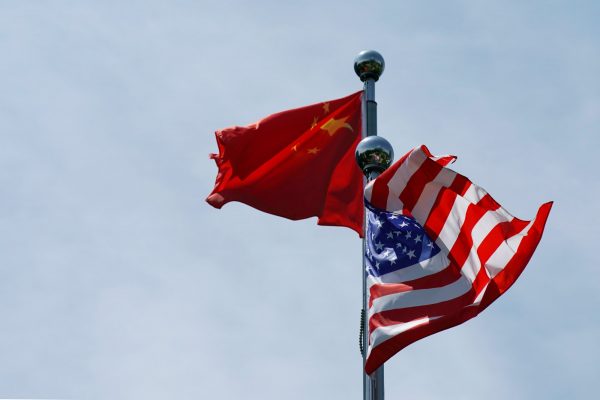This scrutiny is resulting in investigations of US scientists with ties to China, raising concerns about the future of US–China research collaboration.
This concern recently increased due to three changes to US immigration policy. First, on 29 May, US President Donald Trump issued a proclamation suspending and limiting F and J visas for Chinese nationals with ties to China’s Military–Civil Fusion strategy. On 22 June, he then signed another proclamation temporarily suspending the entry of high-skilled temporary foreign workers under the H-1B program. More recently — although now reversed — on 6 July the Department of Homeland Security announced that international students on F-1 and M-1 visas attending schools that opt to go fully online during the autumn term must transfer to another university or leave the United States. The latest guidance is that only new international students are not allowed into the United States for an entirely online academic program.
The justification for these policies are that affected individuals pose a threat to US safety or economic security. But ultimately, they help strengthen Trump’s anti-immigration agenda that portrays internationals as a threat to his ‘America First’ platform.
Numerous US political, organisational and university leaders are voicing their resistance to the policies, arguing that immigrants and international visitors bring many economic and social benefits to US society. While several proposals and policies have been overturned, the disruptions they have caused to the formation and maintenance of transnational research networks will diminish future opportunities for collaboration between US and Chinese scientists.
International scholars and graduate students have long played vital roles in the US science and technology (S&T) enterprise. Over the last two years, approximately 85 per cent of H-1B approvals have been in S&T-related occupational categories.
The vast majority of H-1B workers come from India and China — in 2019, the figures were 71.7 per cent and 13 per cent respectively — and the proportion of Chinese nationals being approved for H-1Bs has steadily increased in recent times. Today, there are more H-1B holders from China employed in US private companies and public institutions, such as colleges and universities, than at any other time in history.
Chinese nationals also make up the largest portion of international graduate students in S&T fields within the United States. Their choice to study in the United States is at least partly motivated by obtaining professional and research-based experiences within the country upon graduation. From 2013 to 2017, 84 per cent of Chinese nationals who graduated from US S&T doctoral programs stayed in the United States for at least five years after graduation. Previous White House administrations have promoted this transition from graduate study to the workforce, as they recognised the valuable contributions these individuals make to US society.
The recent Trump administration policies threaten to reduce the number of internationals seeking employment through H-1Bs and other temporary work visas or applying for admission into S&T graduate programs.
With this decline comes a reduction in the number of opportunities for transnational networks to be formed and maintained between US and Chinese scientists. Chinese nationals who take research positions or study in the United States tend to maintain and establish ties with colleagues at Chinese institutions. They also serve as intermediaries between unacquainted US and Chinese scientists, helping to establish new opportunities for future research collaboration. Those who return to China after completing their work or studies in the United States are also likely to continue collaborating with US colleagues, resulting in long-term partnerships between the two countries.
Ultimately, these three immigration policies are part of a broader pattern of xenophobia that is creating an uncertain and threatening environment in the United States. If Chinese nationals anticipate unfavorable treatment in the United States, they may seek opportunities elsewhere — either in China or in other economically advanced countries with friendlier immigration policies.
This choice will likely have negative consequences for S&T in both countries. It will result in fewer opportunities for collaboration between US and Chinese scientists, limiting their chances to pool knowledge, skills and resources to engage in cutting-edge research. And significantly, the United States will lose access to highly-skilled foreign nationals that are crucial for its success in both commercial and academic S&T research.
For China, if fewer scientists receive training or gain research experience in the United States, it will accrue less benefits from its policies that promote international cooperation to help grow its S&T enterprise. And for both countries, collaboration enhances the growth of their S&T output — recent research shows that US growth benefits more from collaboration than China’s does.
To ensure that all forms of collaboration between the United States and China remain strong, the Trump administration must determine how to best leverage and facilitate collaboration with China to promote a win–win situation for all parties involved. Vilifying Chinese and other foreign nationals and concocting immigration policies to limit their entry into the United States will provide fewer benefits to the United States than remaining open and engaged with the world.
John P Haupt is a PhD student in the Center for the Study of Higher Education at the University of Arizona.
Jenny J Lee is Professor in the Center for the Study of Higher Education at the University of Arizona.

